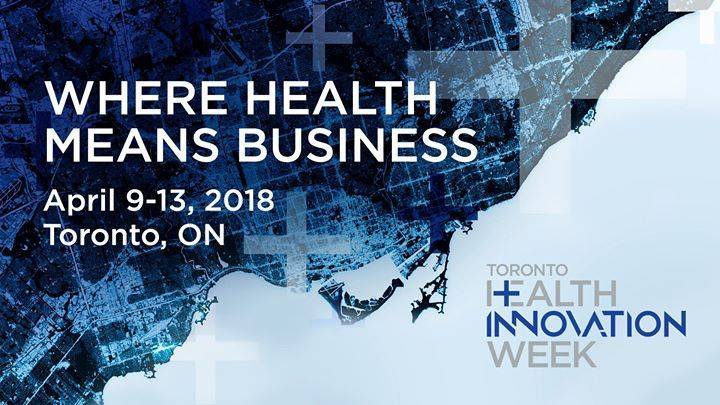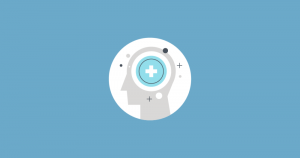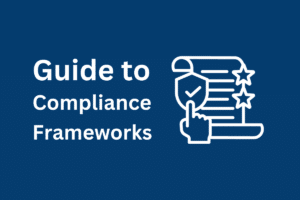And now, a moment to breathe. What an exciting few days it’s been. Toronto Health Innovation Week (THIW) happened last week and, though exhausting, it was full of stories and events that have made me more excited than ever about the potential of the digital health ecosystem we have here in our community.
Health Startup Dual Innovation Panel
We’re so enthused by THIW that we held our own event on Monday to celebrate. In partnership with our friends and partners MediSeen and H2i, I moderated two panel discussions to a packed house specifically targeted at peeling the layers back in the process by which early stage software startups and healthcare providers collaborate. There were tough, important questions asked, but also notes of the recognition of the great progress we’ve made.
The first panel featured Dr. Alexandra Greenhill of Careteam, Hassaan Ahmed of BlockHealth and Dr. Richard Sztramko of Virtual Ward Medicine discussing their personal experiences that inspired them to build their family care coordination, AI-driven intake manager, and physician handover projects respectively, and what it’s been like to drive adoption of their solutions in the Canadian healthcare system. To facilitate a complete picture, they were joined on stage by Sharon Wong, Director of Commercialization at Holland Bloorview Kids’ Rehabilitation Hospital and George Jewell, Business Development Executive at Sinai Health System. Some of the takeaways:
- There is a strong interest in exploration of technology solutions within our hospitals
- The industry is recognizing, however, that the positive changes we need to drive in care cannot come solely from single-vendor solutions, but rather an ecosystem of integrated applications
- Working within the system, its processes, and expectations is the best way to drive engagement, though we need to do better to accelerate this to “startup speed”
Thank you @MedStack for moderating such an interesting and topical panel #THIW #TOHealthStartups pic.twitter.com/c1xQPBor8Z
— Phelix (@phelixai) April 9, 2018
The second panel dug into a different aspect of the digital health entrepreneurship ecosystem, with Daniel Warner of home care coordination platform MediSeen and Vikram Luthra of clinical virtual messaging system Avocare discussing the role of public organizations and policy setting as a vehicle to removing barriers to adoption of digital health solutions with Elizabeth Keller of OntarioMD and Patrick Lo of Privacy Horizon. The conversation really zeroed in on incentives, contrasting the adoption of startup-driven innovations with the successes in driving EMR adoption with physicians in the province. The panel suggested:
- It’s important not to lose sight of the fact that patient centricity is the key driver underpinning all system changes. Patient experiences shouldn’t be silo’d.
- Many healthcare innovations come from inspirations of entrepreneurs in their own experiences as patients
- There are pros and cons to the notion of the public sector vetting and recommending technologies, but either way, governments are important stakeholders to consider
Toronto Health Innovation Week!Thanks for a great Health Startup panel on how start-ups and innovative entrepreneurs tackle digital health with public sector orgs! @OntarioEMRs @keller_canada @MedStack @MediSeenHealth @avocarehealth pic.twitter.com/PklWBkH2cq
— Elizabeth Keller (@keller_canada) April 10, 2018
The event was a great success, bringing together individuals and ideas from across the digital health ecosystem, and it served to represent an encouraging start to the week, with the important discourse covered by Betakit.
RESI Toronto
I took a quick walk around MaRS Discovery District to see who was exhibiting at RESI Toronto this year. There were a few local names I’d recognized, including some companies we’d engaged with at their earliest stages, now progressed enough to be demoing prototypes of their connected medical device, healthcare workflow or digital therapeutics technologies, and even entrants who’d come to Toronto from other places in the world.
TELUS Ventures Summit
The next day was no less busy, with the TELUS Ventures Summit bringing together investors, telcos, startups, hospitals, integrators, and more discussing a wide range of topics in the Canadian digital health ecosystem. Some of the standout sessions for me were one comparing opportunities in venture capital versus corporate venture partnerships, the innovation process within Amazon’s Web Services group, and a summary of the latest approaches to healthcare technology objectives within TELUS. AI, blockchain, and IoT stood out as key enablers in the future collectively envisioned at the event.
I was honoured to participate on a panel discussion on the role of technology platforms in driving better healthcare outcomes, which I shared with Martin Kelly from healthcare partnership coordination platform HealthXL, TELUS Health’s VP of Product Strategy Sanjay Cherian and Leonard Kish, CEO of blockchain-based healthcare data platform YouBase, moderated by TELUS Health’s CTO, Luc Gagnon. Again, the need for a multi-vendor approach to bringing patient-centricity was underscored, and I took the opportunity on the main stage to also add that there is a need to build a strong community of innovators that drives collaboration and partnership between entrepreneurs, and not just their technologies. Bubbling to the surface in the Q&A were important discussions on patient data ownership, privacy, and how EMR-centric and startup-based technologies can interoperate seamlessly via powerful enablers such as FHIR.
@MedStack CEO Balaji Gopalan underlines importance of building not just technology but also a community of health innovators who can work together and learn from each other. #thiw2018 #TELUSVenturesSummit pic.twitter.com/1PYQPf1ty9
— Alex Greenhill MD 🌎 (@atgreenhill) April 11, 2018
I was pleased to see so many of our customers, partners, investors and mentors at the Venture Summit.
HealthTO
The busy day transitioned to busy evening with the Special Edition of HealthTO, an invigorating celebration of our community. On stage, MediSeen officially launched their public beta product, and we couldn’t be prouder to contribute to their journey. Also on stage was our longtime customer Maple’s CEO Dr. Brett Belchetz, who has made tremendous progress in the past year with their virtual care platform, including being accepted in the newest cohort of a high-profile insuretech accelerator. Ran Manor, Startup Services Manager for our friends at the Biomedical Zone was also on stage, providing industry-proven advice for new startups and aspiring digital health entrepreneurs. In addition, MedStack customer and physician e-referral service ConsultLoop was demoing in the exhibition corridor. Everywhere we looked we saw our partners and friends. It’s heartening to be a member of such a wonderful ecosystem.
And here's our customer partner @getmaple and their CEO @brettbel at #HealthTO talking about the rollercoaster that is the Canadian #DigitalHealth industry. @TechTorontoOrg #THIW #TOhealthstartups pic.twitter.com/4MSoeZn5Jk
— MedStack, Inc. (@MedStack) April 12, 2018
UofT Future of Health Innovation
Fittingly, the week ended with a look to the future with the University of Toronto’s The Future of Health Innovation conference, where robotics, AI, and regenerative medicine featured prominently. It was heartening to see William Charnetski, the province’s Chief Health Innovation Strategist, on stage himself stating that while there is much to be encouraged about in the partnerships between university researchers, startups and healthcare providers, we still have a journey in front of us in sustainably addressing the capacity challenges we face. Nevertheless, it’s always energizing to see the bleeding edge of what can be accomplished in the application of technology. I was personally happy to see the latest developments and insights from two companies that I personally greatly admire: Myant, a smart textiles provider, and our Creative Destruction Lab cohort-mates Trexo Robotics, developers of a robotic exoskeleton for disabled children.
Healthcare is hard. Innovation in healthcare is very hard. Bringing technology to healthcare is a daunting challenge for many. But those who know me know that I say, “that’s what makes it worth it”. Our achievements are worth celebrating for a multitude of reasons, including the fact that they make the world better for those in our community, that they’re hard-earned, and undeniably, each success inspires more. As Dr. Sztramko said during our panel event, “The sheer fact that this week is happening with so much attention, that shows how far we’ve come. It wouldn’t have been the case even a few years ago.” I can’t wait for next year.





